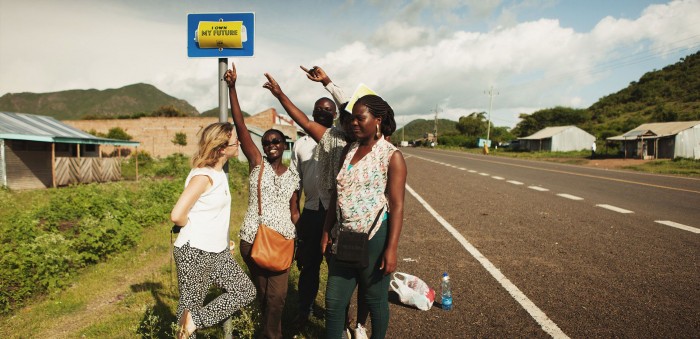
Focussed in five regions across Kenya, Future Fab has established a new way to engage local teens, their communities and their health care providers about reproductive health. Specifically, as it relates to the value and knowledge sharing of contraception.
During a six-month evaluation of the pilot program, Future Fab observed that the percentage of visits by adolescents increased from a meagre 9.5 per cent to a whopping 23 per cent. After the success of its pilot in Zambia, they partnered with Marie Stopes International to create a bold, straight-talking brand to disarm the stigma facing both girls and boys who seek access to contraception. The campaign touched on key messages about bright futures, owning your future and reaching personal potential by engaging them through the things or at their points of daily conversation. The outcome was to get these adolescents to understand the role contraception can play in reaching their dreams, whether it be today or in the future.
“We find ourselves coming again and again to the same insight around needing an entry point into the conversation around contraception,” says Health XO program lead Jessa Blades. “That entry point can come in a lot of different forms, and with Future Fab it came in the form of associating contraception with an aspirational lifestyle,” she says.
The Future Fab brand is expressed through a variety of channels some of which include social events with an adolescent focus instead of a clinic drive, talent and fashion shows that culminate in a high-energy atmosphere that motivates these young people to celebrate ambitions and talents of their peers. In this way, Future Fab is connecting contraception to things that they already value and emphasising the role it can play in helping pursue these ambitions or interests. By leveraging positive, teen-focused emotions in a central place, the Future Fab team were able to channel good sentiment towards reproductive health education.
“Within every event, we have a separate area where young people can learn about contraception,” says Blades. “We’re not making it the spectacle, but people leave having learned that contraception is for everyone, and know where they need to go to learn more.” The team is also seeing signs of success by experimenting with pop-up services available at the events.
One of the key elements that emerged when Future Fab was prototyped was the design of a teen-centric magazine that provides important contraception information within the context of aspirational, yet an entirely accessible adolescent lifestyle. “In a climate where you can’t really talk about contraception openly, fear spreads,” says Blades. “We wanted the magazine to show real faces, real stories, real successes. This principle extends to all of our materials and interactions,” she explains.
Based on the success of this pilot, Marie Stopes International is planning to further roll out Future Fab to clinics to extend their partner network.






